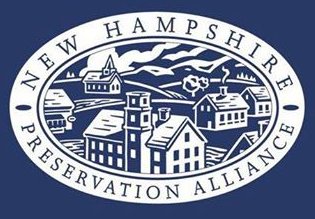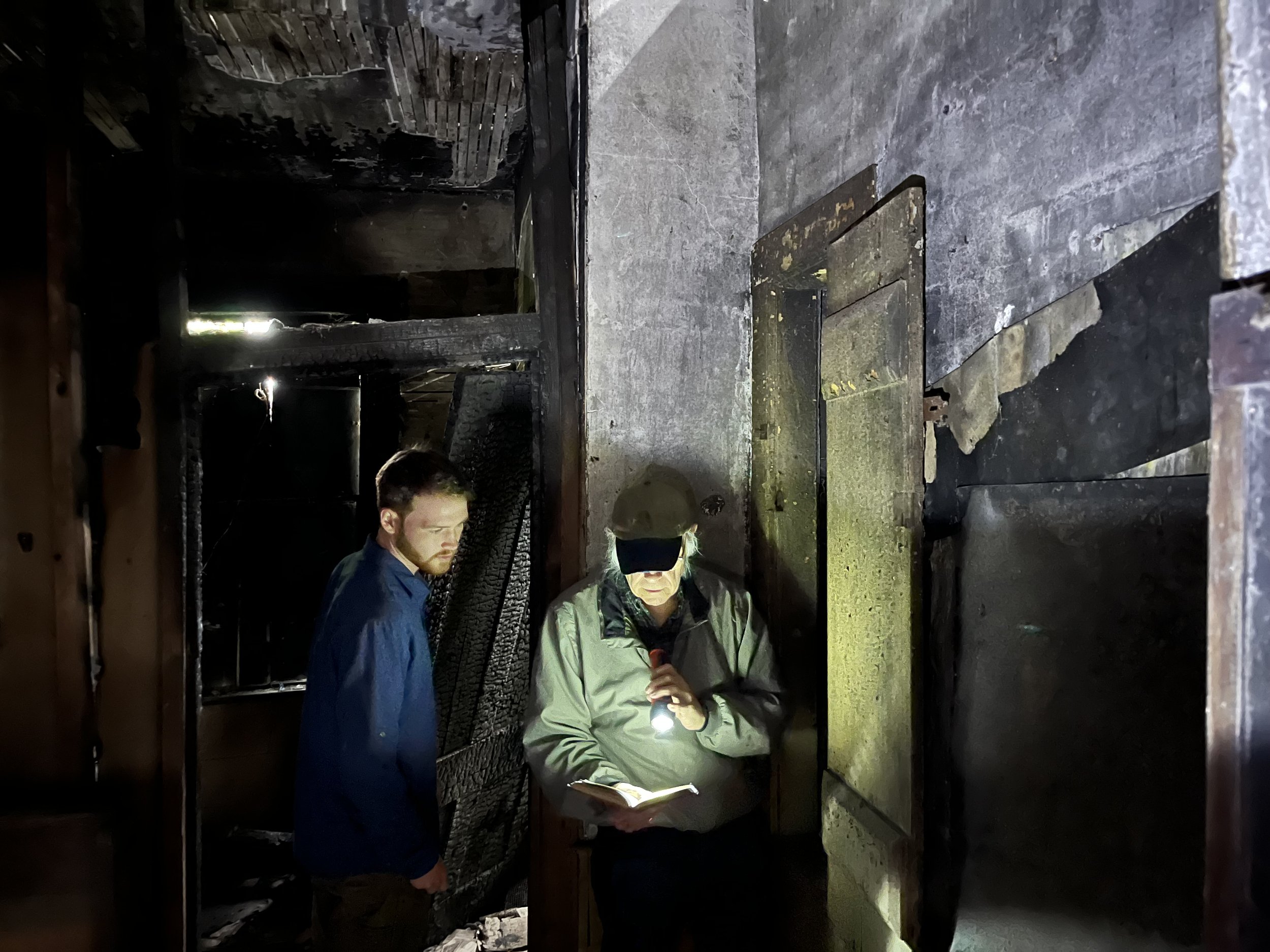Thank You Lucas!
We asked Lucas Newton, the N.H. Preservation Alliance’s summer intern, to share his impressions of his behind-the-scenes, in-office work as well as his time on the road visiting people and projects across the state. He's done a lot in a short amount of time, provided helpful perspectives, and produced excellent products.
Pictured: Lucas (left) with Preservation Alliance staffer Andrew Cushing in front of the Village Schoolhouse at Canterbury Shaker Village. The Schoolhouse was one of our 1772 Grant recipients in 2022 with the funds used for exterior repairs to the clapboards and trim, and painting.
What did an average day for you look like at the NH Preservation Alliance?
I spent most days working at the office in Concord, where I completed all sorts of tasks. I edited and wrote blog posts, assisted in state register nominations, reported on monitoring visits to historic easements, and more. In the off moments when I had down time, there were always opportunities to organize and file documents, help a coworker with a job, or to further familiarize myself with the historic properties that I would be visiting next. Most importantly for me, each day I felt like the work I was completing had merit. The jobs being performed by my coworkers always excited me, and whether I was helping them to co-write their programs, or by making copies for them, I understood that I was fulfilling a necessary role in the protection of the physical history of New Hampshire. I found this responsibility to be profoundly gratifying.
What were some of the highlights from your month working for the NH Preservation Alliance?
Exploring the state with Beverly Thomas and Andrew Cushing was a real treat. I was able to spend a handful of days shadowing them as Beverly conducted her annual easement monitoring and Andrew met with community leaders as a NH Preservation Alliance field representative. These visits around the state provided me with an opportunity to better understand the processes required to make preservation projects a reality. It was inspiring to see the enthusiasm expressed by all the property owners, town representatives, contractors, tradesmen, volunteers, fundraisers, and allies who care immensely for protecting their historic buildings. Many of these individuals shared stories of their ancestors and predecessors who animated their buildings and communities decades or even centuries ago.
With Beverly, we closely inspected the buildings protected under their historic easements, and along with admiring the structures for their architectural grandeur, I was also given insight into the operations required to upkeep the properties. On my days traveling with Andrew, I enjoyed the creative thinking required for the rehabilitation and restoration projects we encountered. Oftentimes we provided referrals for specific contractors or grant opportunities that were relevant to the needs of project leaders, and other times we brainstormed ideas for adaptive reuse and sustainability.
What are your biggest takeaways from this experience?
I think that more than anything, interning with the NH Preservation Alliance has given me crucial exposure into how a preservation non-profit operates. With only a semester’s worth of Historic Preservation courses at UVM under my belt, I am still very new to this field. In just one month I have learned far more than I could have hoped to during this experience. I’m grateful to have been given the chance to work here because of the capacity this team has to collaborate and organize for unique projects, of all sizes, throughout the state.
What advice would you give someone who is considering volunteering on a preservation project or working in the field?
I would encourage them to give it a try. That is, at least, if they are interested or curious about the field. One of the reasons why I have grown to appreciate historic preservation is because it is rare to meet a preservationist who is not motivated about their work. In other words, the people who work in preservation demonstrate a genuine passion for architecture, craftsmanship, local history, storytelling, and community development. If those are things that excite you, then getting involved in the field should be a rewarding experience filled with like-minded individuals.
Lucus is optimistic about the future of the preservation movement in New Hampshire, and so are we! We wish him well with the second half of his summer internship as he moves on to experience hands-on preservation work at Preservation Timber Framing (https://www.preservationtimberframing.com/).
Know of someone interested in a summer 2024 internship? Send us an email at projects@nhpreservation.org and watch for a posting in January 2024.
If you haven’t had a chance to read it yet, don’t forget to check out our Q&A with Lucas when he first arrived as our summer intern.



